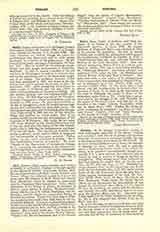

Curry, JOHN, doctor of medicine and Irish historian; b. in Dublin in the first quarter of the eighteenth century; d. there, 1780. He studied medicine at Paris and Reims and returned to Dublin to practice his profession. He was an ardent Catholic and, to refute the calumnies leveled against his coreligionists, published in London, in 1747, a “Brief Account from the most authentic Protestant Writers of the Irish Rebellion, 1641”. This was bitterly attacked by Walter Harris in a volume published in Dublin, 1752, and in reply Curry published his “Historical Memoirs”, afterwards enlarged and published (1775) under the title “An Historical and Critical Review of the Civil Wars in Ireland“. This is his best work; a new edition of it, enlarged from Curry’s manuscript, was published by Charles O’Connor of Belnagare, in 2 vols. (Dublin, 1786), and in one vol. (Dublin, 1810). In this work, after a brief glance over the developments in Ireland after the invasion of Henry II, he takes up the real history at the reign of Elizabeth and carries it down to the Settlement under William III. Curry took a prominent part in the struggle of the Irish Catholics for the repeal of the Penal Laws, and was one of the founders of the (Irish) Catholic Committee which met in Essex Street, 1760. Besides the works already mentioned, he published “An Essay on Ordinary Fevers” (London, 1743) and “Some Thoughts on the Nature of Fevers” (London, 1774).
JAMES MACCAFFREY

